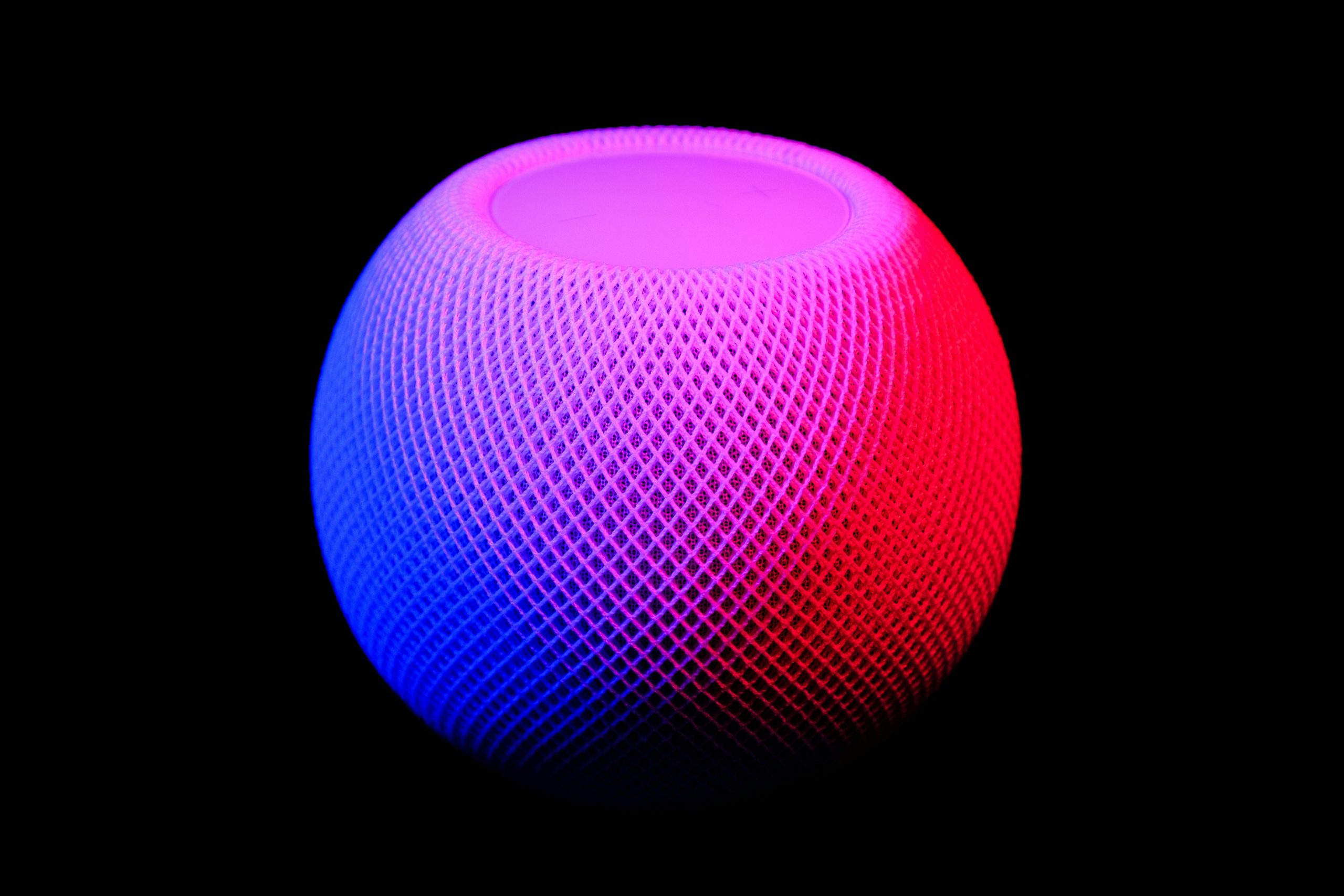In recent years, virtual reality (VR) has transcended its reputation as a mere gaming accessory and has emerged as a transformative technology across numerous industries. From healthcare to education, VR is revolutionizing how we work, learn, and interact. Let’s delve into the multifaceted applications of VR across various sectors.
Healthcare: In healthcare, VR is proving to be a game-changer. Surgeons can now rehearse complex procedures in a virtual environment, reducing the risk of errors during actual surgeries. VR is also being used for pain management, distraction therapy, and treating phobias and PTSD through exposure therapy.
Education: VR has immense potential in education by providing immersive learning experiences. Students can explore historical sites, dissect virtual organisms, or dive into interactive simulations, enhancing engagement and retention. It offers a new dimension to traditional teaching methods, making learning more interactive and enjoyable.
Architecture and Real Estate: Architects and real estate developers are leveraging VR to showcase designs and properties in a compelling manner. Clients can take virtual tours of buildings yet to be constructed, allowing them to visualize spaces and provide feedback before any physical work begins. This technology streamlines the design process and enhances client satisfaction.
Tourism and Hospitality: VR is transforming the way people experience travel and hospitality. Tourists can take virtual tours of destinations, hotels, and attractions, helping them make informed decisions before booking. Hotels are also using VR to offer immersive experiences to guests, from virtual room tours to simulated adventures in exotic locations.
Automotive Industry: In the automotive sector, VR is utilized for design visualization, prototyping, and training. Car manufacturers can simulate driving experiences, test vehicle safety features, and train technicians in a virtual environment, reducing costs and enhancing efficiency.
Retail: VR is reshaping the retail landscape by enabling virtual shopping experiences. Customers can browse products, try on clothes, and visualize furniture in their homes using VR applications. This immersive shopping experience bridges the gap between online and in-store shopping, offering convenience and personalization.
Military and Defense: The military uses VR for training soldiers in various scenarios, from combat situations to vehicle operation. Virtual simulations allow troops to practice decision-making and tactical skills in a safe and controlled environment, preparing them for real-life missions.
Entertainment and Media: While gaming remains a prominent application of VR, the entertainment industry is exploring new ways to engage audiences through immersive experiences. VR concerts, movie screenings, and virtual theme parks are just a few examples of how VR is transforming entertainment.
Sports and Fitness: Athletes are incorporating VR into their training routines to improve performance and rehabilitation. VR simulations enable athletes to analyze their technique, simulate game scenarios, and visualize strategies, enhancing their skills and decision-making abilities.
Psychology and Therapy: VR is being used in psychology for exposure therapy, treating anxiety disorders, and cognitive rehabilitation. Virtual environments provide a safe space for patients to confront their fears and challenges under the guidance of therapists, leading to more effective treatment outcomes.
In conclusion, virtual reality is not just a futuristic concept but a present-day reality with far-reaching implications across industries. As technology continues to advance, we can expect to see even more innovative applications of VR, further enhancing our lives and reshaping the way we work, learn, and play.
Urban Planning and Design: VR is becoming an invaluable tool in urban planning and design. City planners can create virtual models of urban spaces to visualize proposed developments, assess their impact on the environment, and gather feedback from stakeholders. This immersive approach facilitates collaborative decision-making and promotes sustainable development practices.
Aerospace and Aviation: The aerospace industry relies on VR for aircraft design, pilot training, and maintenance simulations. Virtual environments allow engineers to test aerodynamics, cockpit layouts, and safety features before manufacturing physical prototypes. Pilots can also undergo realistic flight training in VR simulators, enhancing their skills and readiness for diverse flying conditions.
Manufacturing and Industrial Training: VR is revolutionizing training programs in manufacturing and industrial sectors. Workers can practice operating machinery, troubleshooting equipment, and adhering to safety protocols in virtual simulations, minimizing the risk of accidents and downtime. VR-based training modules are cost-effective and scalable, ensuring consistent skill development across diverse workforce demographics.
Environmental Conservation and Awareness: Environmental organizations are harnessing the power of VR to raise awareness about conservation efforts and environmental issues. Through immersive documentaries and interactive experiences, VR enables viewers to explore ecosystems, witness environmental changes, and understand the importance of biodiversity conservation. This innovative approach fosters empathy and inspires action to protect our planet.
Telecommunications and Remote Collaboration: With the rise of remote work and telecommuting, VR offers new possibilities for virtual collaboration and communication. Teams dispersed across different locations can meet in virtual spaces, collaborate on projects, and conduct training sessions as if they were physically present. VR-based teleconferencing tools enhance productivity and foster a sense of connection among remote team members.
Disaster Preparedness and Emergency Response: VR simulations play a crucial role in training first responders and emergency personnel for disaster scenarios. Firefighters, paramedics, and rescue teams can practice coordination, decision-making, and crisis management in realistic virtual environments. These simulations improve preparedness and readiness to mitigate the impact of natural disasters and humanitarian crises.
Cultural Preservation and Heritage Tourism: VR technology enables cultural institutions to preserve and showcase heritage sites, artifacts, and artworks in immersive digital archives. Virtual museums, archaeological reconstructions, and historical reenactments offer audiences around the world the opportunity to explore cultural heritage in unprecedented ways. VR-based heritage tourism initiatives promote cultural exchange and preservation efforts, fostering appreciation for diverse cultural traditions.
Financial Services and Virtual Banking: In the financial sector, VR is enhancing customer engagement and personalized banking experiences. Virtual banking platforms allow users to interact with financial advisors, manage investments, and explore financial products in immersive virtual environments. VR-based financial education programs empower individuals to make informed financial decisions and improve their financial literacy.
Transportation and Urban Mobility: VR simulations are reshaping the future of transportation and urban mobility by enabling the testing and development of autonomous vehicles, smart transportation systems, and urban infrastructure projects. City planners and transportation engineers can assess traffic patterns, optimize road designs, and plan public transit routes using VR-based modeling and simulation tools. These innovations contribute to the creation of more efficient, sustainable, and accessible transportation networks.
Humanitarian Aid and Global Development: VR technology has the potential to revolutionize humanitarian aid and global development efforts by providing immersive experiences that raise awareness about social issues, promote empathy, and mobilize support for humanitarian causes. Virtual reality documentaries, advocacy campaigns, and fundraising initiatives enable organizations to amplify their impact and engage audiences in meaningful ways. VR-based training programs also equip aid workers and development practitioners with the skills and knowledge needed to address complex challenges in diverse cultural contexts.
In summary, the diverse applications of virtual reality across industries are reshaping how we perceive, interact with, and navigate the world around us. From healthcare and education to entertainment and environmental conservation, VR is unlocking new possibilities for innovation, collaboration, and social impact. As technology continues to evolve, the potential of VR to drive positive change and transform industries is limitless.
Legal and Forensic Sciences: Virtual reality technology is increasingly being utilized in legal and forensic contexts. Law enforcement agencies and legal professionals can reconstruct crime scenes, visualize evidence, and conduct virtual walkthroughs of complex legal cases. VR simulations aid in jury deliberations by providing jurors with immersive experiences that enhance their understanding of case details and facilitate more informed decision-making.
Language Learning and Cross-Cultural Communication: VR offers innovative solutions for language learning and cross-cultural communication. Language learners can immerse themselves in virtual environments where they interact with native speakers, practice conversational skills, and explore cultural nuances. Virtual reality language labs and immersive language immersion programs provide learners with realistic scenarios that enhance language acquisition and cultural competency.
Supply Chain Management and Logistics: VR technology is revolutionizing supply chain management and logistics by providing real-time visibility into supply chain operations and optimizing logistics processes. Logistics professionals can use VR simulations to visualize warehouse layouts, streamline inventory management, and optimize transportation routes. VR-based training programs improve the efficiency and safety of logistics operations by providing hands-on experience in virtual environments.
Music and Performing Arts: Virtual reality is transforming the music and performing arts industries by offering immersive concert experiences, virtual rehearsals, and interactive performances. Musicians and performers can reach global audiences through virtual reality concerts and live-streamed events, transcending geographical barriers and engaging fans in new ways. VR technology also enables artists to create interactive installations and immersive art experiences that push the boundaries of creativity and expression.
Fashion and Retail Merchandising: In the fashion industry, VR is revolutionizing the way clothing is designed, marketed, and sold. Fashion designers can create virtual prototypes, visualize garment designs in 3D, and simulate fashion shows in immersive virtual environments. Virtual reality fitting rooms allow customers to try on clothes virtually, personalize their shopping experience, and make informed purchasing decisions. VR-based retail merchandising tools help retailers optimize store layouts, plan product placements, and enhance the overall shopping experience for customers.
Personal Development and Wellbeing: Virtual reality technology is being harnessed for personal development, self-improvement, and mental wellbeing. VR-based mindfulness and meditation apps offer immersive experiences that help users reduce stress, improve focus, and cultivate mindfulness. Virtual reality therapy programs provide therapeutic interventions for mental health conditions such as anxiety, depression, and PTSD, offering patients a safe and effective alternative to traditional therapy approaches.
Wildlife Conservation and Ecotourism: VR technology is playing a crucial role in wildlife conservation and ecotourism initiatives by raising awareness about endangered species, biodiversity hotspots, and conservation efforts. Virtual reality nature documentaries and immersive wildlife experiences allow viewers to explore remote habitats, encounter rare wildlife, and learn about conservation challenges facing our planet. VR-based ecotourism experiences promote sustainable tourism practices and support conservation projects aimed at protecting fragile ecosystems and endangered species.
Space Exploration and Astronomy: Virtual reality technology is transforming the field of space exploration and astronomy by providing immersive experiences that enable users to explore the cosmos, navigate virtual space missions, and experience the wonders of the universe. VR-based space simulations allow astronauts to train for space missions, practice extravehicular activities, and familiarize themselves with spacecraft systems in realistic virtual environments. Virtual reality astronomy apps and planetarium experiences offer users the opportunity to explore celestial phenomena, observe distant galaxies, and learn about the mysteries of the universe from the comfort of their own homes.
Sustainable Agriculture and Food Systems: VR technology is being applied to sustainable agriculture and food systems to improve crop management practices, optimize agricultural production, and promote environmental sustainability. Virtual reality farm simulations allow farmers to visualize crop growth, monitor soil health, and make data-driven decisions to maximize yields while minimizing environmental impact. VR-based agricultural training programs provide farmers with practical skills and knowledge to adopt sustainable farming practices, conserve natural resources, and promote food security in a changing climate.
Smart Cities and Urban Planning: Virtual reality technology is driving innovation in smart cities and urban planning by providing immersive experiences that enable stakeholders to visualize and design future urban environments. VR-based urban planning tools allow city planners, architects, and policymakers to explore different urban design scenarios, evaluate the impact of development projects, and engage citizens in the planning process. Virtual reality city simulations help create more livable, sustainable, and resilient cities by integrating smart technologies, promoting mixed-use development, and enhancing urban connectivity and mobility.
Transportation and Urban Mobility: VR simulations are reshaping the future of transportation and urban mobility by enabling the testing and development of autonomous vehicles, smart transportation systems, and urban infrastructure projects. City planners and transportation engineers can assess traffic patterns, optimize road designs, and plan public transit routes using VR-based modeling and simulation tools. These innovations contribute to the creation of more efficient, sustainable, and accessible transportation networks.
Humanitarian Aid and Global Development: VR technology has the potential to revolutionize humanitarian aid and global development efforts by providing immersive experiences that raise awareness about social issues, promote empathy, and mobilize support for humanitarian causes. Virtual reality documentaries, advocacy campaigns, and fundraising initiatives enable organizations to amplify their impact and engage audiences in meaningful ways. VR-based training programs also equip aid workers and development practitioners with the skills and knowledge needed to address complex challenges in diverse cultural contexts.
In summary, the diverse applications of virtual reality across industries are reshaping how we perceive, interact with, and navigate the world around us. From healthcare and education to entertainment and environmental conservation, VR is unlocking new possibilities for innovation, collaboration, and social impact. As technology continues to evolve, the potential of VR to drive positive change and transform industries is limitless.
Legal and Forensic Sciences: Virtual reality technology is increasingly being utilized in legal and forensic contexts. Law enforcement agencies and legal professionals can reconstruct crime scenes, visualize evidence, and conduct virtual walkthroughs of complex legal cases. VR simulations aid in jury deliberations by providing jurors with immersive experiences that enhance their understanding of case details and facilitate more informed decision-making.
Language Learning and Cross-Cultural Communication: VR offers innovative solutions for language learning and cross-cultural communication. Language learners can immerse themselves in virtual environments where they interact with native speakers, practice conversational skills, and explore cultural nuances. Virtual reality language labs and immersive language immersion programs provide learners with realistic scenarios that enhance language acquisition and cultural competency.
Supply Chain Management and Logistics: VR technology is revolutionizing supply chain management and logistics by providing real-time visibility into supply chain operations and optimizing logistics processes. Logistics professionals can use VR simulations to visualize warehouse layouts, streamline inventory management, and optimize transportation routes. VR-based training programs improve the efficiency and safety of logistics operations by providing hands-on experience in virtual environments.
Music and Performing Arts: Virtual reality is transforming the music and performing arts industries by offering immersive concert experiences, virtual rehearsals, and interactive performances. Musicians and performers can reach global audiences through virtual reality concerts and live-streamed events, transcending geographical barriers and engaging fans in new ways. VR technology also enables artists to create interactive installations and immersive art experiences that push the boundaries of creativity and expression.
Fashion and Retail Merchandising: In the fashion industry, VR is revolutionizing the way clothing is designed, marketed, and sold. Fashion designers can create virtual prototypes, visualize garment designs in 3D, and simulate fashion shows in immersive virtual environments. Virtual reality fitting rooms allow customers to try on clothes virtually, personalize their shopping experience, and make informed purchasing decisions. VR-based retail merchandising tools help retailers optimize store layouts, plan product placements, and enhance the overall shopping experience for customers.
Personal Development and Wellbeing: Virtual reality technology is being harnessed for personal development, self-improvement, and mental wellbeing. VR-based mindfulness and meditation apps offer immersive experiences that help users reduce stress, improve focus, and cultivate mindfulness. Virtual reality therapy programs provide therapeutic interventions for mental health conditions such as anxiety, depression, and PTSD, offering patients a safe and effective alternative to traditional therapy approaches.
Wildlife Conservation and Ecotourism: VR technology is playing a crucial role in wildlife conservation and ecotourism initiatives by raising awareness about endangered species, biodiversity hotspots, and conservation efforts. Virtual reality nature documentaries and immersive wildlife experiences allow viewers to explore remote habitats, encounter rare wildlife, and learn about conservation challenges facing our planet. VR-based ecotourism experiences promote sustainable tourism practices and support conservation projects aimed at protecting fragile ecosystems and endangered species.
Space Exploration and Astronomy: Virtual reality technology is transforming the field of space exploration and astronomy by providing immersive experiences that enable users to explore the cosmos, navigate virtual space missions, and experience the wonders of the universe. VR-based space simulations allow astronauts to train for space missions, practice extravehicular activities, and familiarize themselves with spacecraft systems in realistic virtual environments. Virtual reality astronomy apps and planetarium experiences offer users the opportunity to explore celestial phenomena, observe distant galaxies, and learn about the mysteries of the universe from the comfort of their own homes.
Sustainable Agriculture and Food Systems: VR technology is being applied to sustainable agriculture and food systems to improve crop management practices, optimize agricultural production, and promote environmental sustainability. Virtual reality farm simulations allow farmers to visualize crop growth, monitor soil health, and make data-driven decisions to maximize yields while minimizing environmental impact. VR-based agricultural training programs provide farmers with practical skills and knowledge to adopt sustainable farming practices, conserve natural resources, and promote food security in a changing climate.
Smart Cities and Urban Planning: Virtual reality technology is driving innovation in smart cities and urban planning by providing immersive experiences that enable stakeholders to visualize and design future urban environments. VR-based urban planning tools allow city planners, architects, and policymakers to explore different urban design scenarios, evaluate the impact of development projects, and engage citizens in the planning process. Virtual reality city simulations help create more livable, sustainable, and resilient cities by integrating smart technologies, promoting mixed-use development, and enhancing urban connectivity and mobility.





